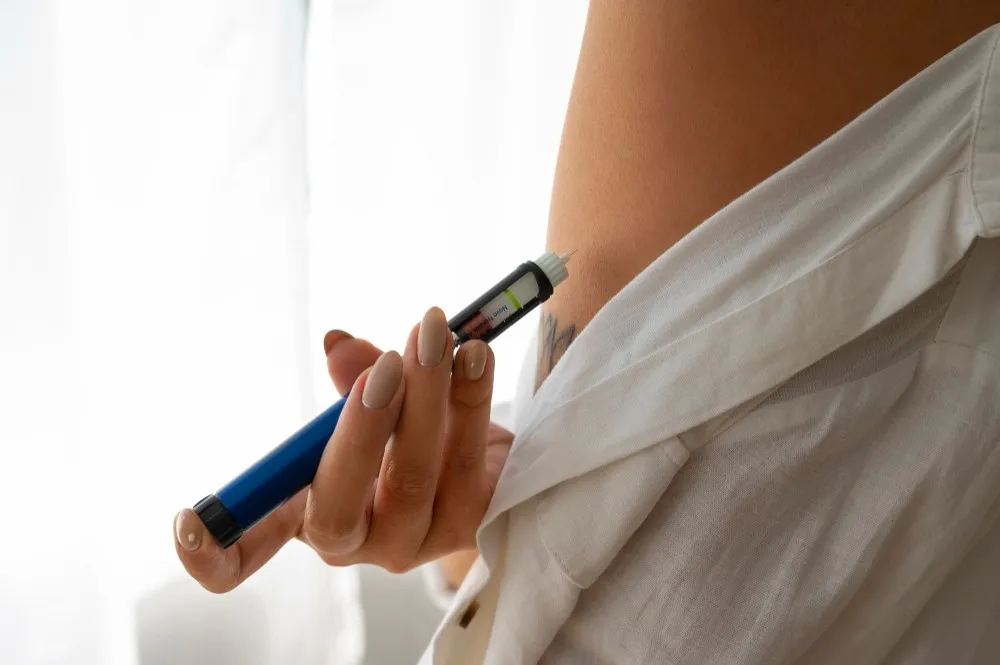|
Diabetics may donate blood if their sugar is well-controlled. Eligibility depends on type, medications, and complications. Medical checks ensure safety for both donor and patient. |
What happens when someone with diabetes sits in a donation chair and wonders, Can diabetics donate blood? It’s a fair question. Millions across the U.S. live with diabetes, yet blood drives need every willing hand.
The answer isn’t black or white. It’s shaped by rules, health checks, and honest conversations with staff. Here’s what patients, families, and donors need to know before rolling up their sleeves.
Can Diabetics Donate Blood?
The short answer? Yes, diabetics can donate blood, but eligibility for blood donation with diabetes depends on health stability and local guidelines.
Blood donation and diabetes don’t always cancel each other out. In fact, many people living with Type 2 diabetes are approved to donate, especially when sugar is well managed by diet or tablets. Some with Type 1 diabetes may also donate, though rules vary.
Before approval, staff check basic requirements:
-
The donor must feel well on the day.
-
Sugar levels need to be stable.
-
No major diabetic complications like kidney or eye disease.
Rules for Diabetics Who Want to Donate Blood
Rules for diabetics donating blood exist to protect both sides. Donation puts temporary stress on the body. If health is balanced, recovery is smooth. If not, problems may follow.
1. Blood Sugar Checks
Stable sugar is non-negotiable. Blood sugar levels and blood donation are connected because sudden swings can make recovery harder. A donor with steady numbers usually qualifies.
2. Medications
Can a diabetic on insulin donate blood? Some centers say no, while others accept if the donor is otherwise healthy. Oral medicine users, such as metformin, for example, are usually cleared.
3. General Eligibility
Donors must meet the same basics as others: minimum weight, age over 17, and acceptable haemoglobin. These checks apply before diabetes is even considered.
4. Complications
Who cannot donate blood with diabetes? Anyone with advanced organ damage, repeated infections, or poor wound healing is usually deferred. It’s a protective measure, not rejection.
Here’s a quick look:
|
Situation |
Likely Decision |
|
Diet-controlled diabetes |
Eligible |
|
Tablet-controlled Type 2 diabetes |
Eligible if sugar stable |
|
Insulin therapy for Type 1 diabetes |
Varies, often restricted |
|
Diabetes with organ damage |
Not eligible |
Risks of Blood Donation for Diabetics
Most risks are mild, but ignoring them isn’t wise. Is blood donation safe for diabetics? Yes, when sugar is under control. But risks deserve attention.
-
Temporary fatigue: Energy dips are common; rest fixes most cases.
-
Sugar changes: A small drop in blood sugar can cause dizziness.
-
Testing issues: Research reported that 52.2% of non-diabetic donors and 41.2% of diabetic donors showed HbA1c decreases after donation. That can confuse doctors reviewing results.
So the risk isn’t about losing blood itself. It’s about how the body adapts and how lab results may look afterward.
Who Should Avoid Donating Blood with Diabetes?
Not everyone is a safe donor. Saying no sometimes prevents bigger problems.
Those advised to avoid donating include:
-
People with uncontrolled diabetes.
-
Anyone with a kidney, heart, or eye disease linked to diabetes.
-
Patients are on frequent insulin changes.
-
Donors with slow-healing wounds or infections.
A hospital review showed that out of 17,082 registered donors, 5.85% were deferred. Of these, 23.6% were permanent deferrals tied to issues like uncontrolled diabetes. That isn’t small. It shows how often these health checks matter.
Facts About Blood Donation and Diabetes
Confusion lingers because myths spread faster than facts. Here are truths backed by experience and policy.
Fact 1: Diabetics can donate when stable
Diabetes and blood donor eligibility depend on sugar control. Stability decides acceptance.
Fact 2: Insulin isn’t always a barrier
Can type 1 diabetics donate blood? In some centers, yes. In others, insulin use means no. There’s no single global rule.
Fact 3: Donation may affect lab results
HbA1c can dip after donation, showing numbers that look better than reality. Doctors advise rechecking weeks later.
Fact 4: Plasma and platelets are also options
Can a diabetic donate plasma or platelets? Yes, provided there are no complications. Eligibility checks mirror whole blood rules.
Fact 5: Safety checks matter more than labels
Why diabetics are not allowed to donate blood in some cases has less to do with the diagnosis and more with the condition of organs, circulation, and infection risk.
Breaking myths helps. Common myths about diabetics and blood donation stop people from helping, even when they’re fit to do so.
Preparing for Blood Donation as a Diabetic
Preparation reduces stress. What to do before donating blood as a diabetic is simple:
-
Eat balanced meals with protein and whole grains.
-
Drink water; hydration keeps dizziness away.
-
Rest properly the night before.
-
Carry a list of medications for staff review.
Small steps mean fewer surprises.
Safer Alternatives for Diabetics Who Cannot Donate
Sometimes, no matter the preparation, doctors advise against donation. That doesn’t end the contribution.
Options include:
-
Volunteering at local donation drives.
-
Spreading awareness about the importance of blood donation and diabetes.
-
Encouraging friends to donate in their place.
-
Supporting education around prediabetes prevention.
-
Joining research programs or patient networks.
The question isn’t only can diabetics donate blood. It’s also how diabetics can help if they cannot donate. The answer is wide open.
Conclusion
So, can diabetics donate blood? Yes, many can, as long as health is steady and sugar levels are controlled. Risks exist, but are manageable for those who cannot; other ways of supporting still matter. The act of giving takes many forms. What counts is contributing safely.
Frequently Asked Questions
Can type 1 diabetics donate blood safely?
Sometimes yes, sometimes no. If sugar is steady and no big complications, it might happen. Many centers still say no to insulin.
Is blood donation safe for diabetics using tablets?
Mostly yes. People on metformin or similar tablets usually pass checks, as long as their numbers stay balanced and no hidden organ trouble shows up.
Who cannot donate blood with diabetes?
Those with wild sugar swings, kidney problems, or constant insulin tweaks get turned away. It’s not punishment, just keeping the donor and blood supply safe.
Can a diabetic donate plasma instead of whole blood?
Yes, often possible. Plasma rules mirror blood donation checks. If the person feels well and labs look fine, the staff usually gives a green light.
What to do before donating blood as a diabetic?
Eat something proper, drink water, sleep decently, and bring a meds list. Tell the nurse everything. Skipping these steps just makes things harder later.
-User-1754380331.png)
Reviewed by







